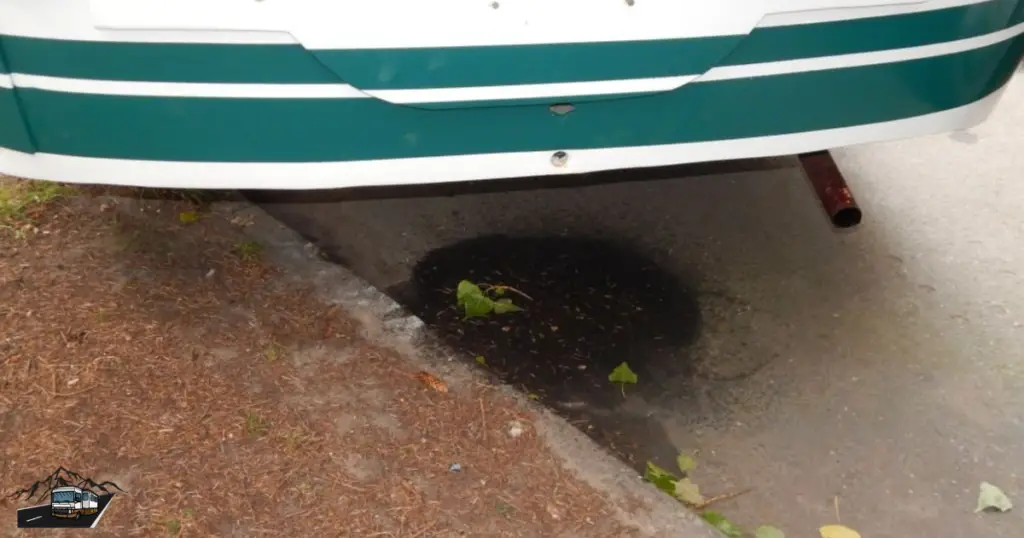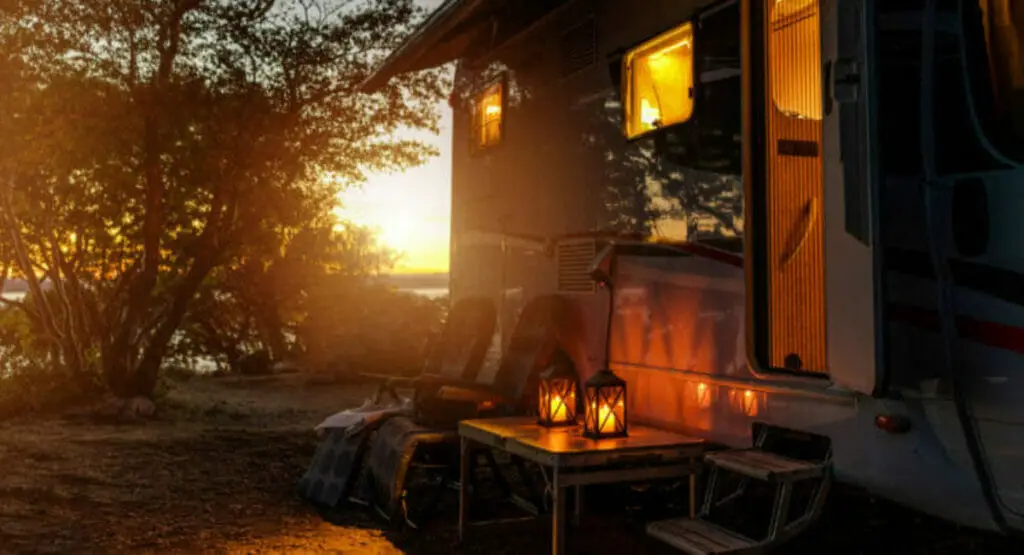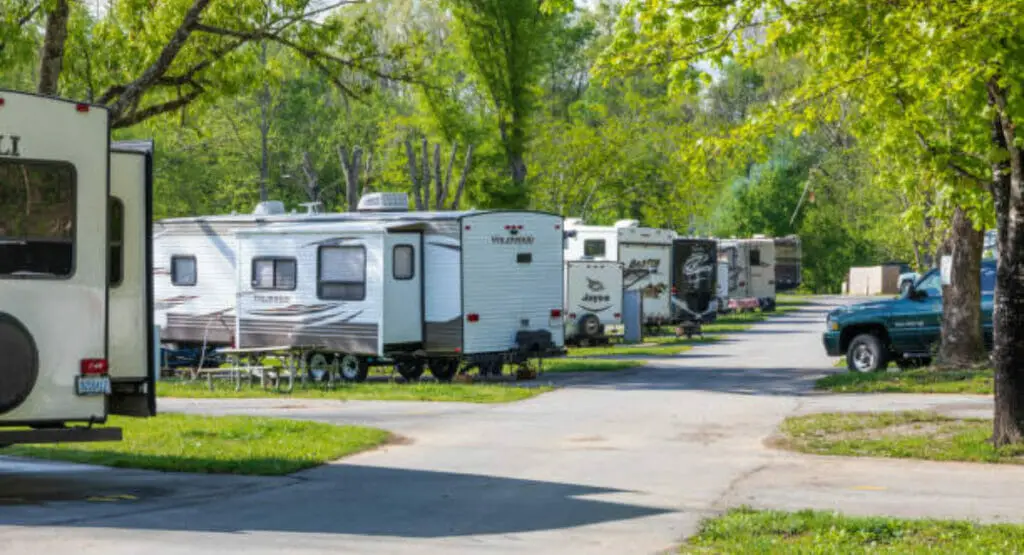RV fresh water tanks are the unsung heroes of any road trip, quietly ensuring a continuous supply of clean water for your adventures. These tanks, which are housed within the confines of your recreational vehicle, play an important role in supplying water for drinking, cooking, and other daily needs.
You may be wondering why there is such a fuss about keeping these tanks leak-free. Imagine being in the middle of nowhere, surrounded by nature’s beauty, and discovering that your RV’s water tank has a leak. It’s not just a hiccup in your journey; it could be a game changer.
Maintaining a leak-free RV water tank is more than just a matter of convenience; it’s also about ensuring your vehicle’s dependability and longevity. A leak may appear to be a minor annoyance, but if left unchecked, it can cause structural damage, mold growth, and water contamination. A leak-free tank is your ticket to a worry-free journey in the world of RV adventures, where self-sufficiency is essential.
I. Signs of a Leaking RV Fresh Water Tank
1. Puddles of water surround the RV.
Finding water puddles around your RV is one of the first signs of trouble. While it may appear to be a minor inconvenience, it is critical to address it as soon as possible to avoid further damage.
2. Water Levels Drop for No Reason
It’s time to investigate if you notice a significant drop in your fresh water levels without a plausible explanation. A leak could be the source of the problem, disrupting your water supply and potentially causing long-term damage.
3. Musty or moldy odor inside the RV
A moldy or musty odor inside your RV is a warning sign. Mold and mildew growth can be caused by leaks, compromising your health and the structural integrity of your vehicle.
II. Causes of RV Fresh Water Tank Leaks
1. Wear and tear
The materials in your RV’s fresh water tank may deteriorate over time, resulting in leaks. Regular inspections are essential, particularly for older RVs.
2. Fittings or connections that are damaged
Common causes are faulty fittings and connections. Water leakage can occur as a result of a loose connection or a cracked fitting, reducing the efficiency of your water system.
3. Temperatures that are below freezing
Without proper winterization, exposing your RV to freezing temperatures can cause the water in your tank to freeze, causing cracks and leaks.
III. DIY Inspection and Maintenance
1. Visual Examination of the Tank
Inspect your fresh water tank on a regular basis for visible signs of damage, such as cracks or bulges. Early detection of problems can save money on costly repairs.
2. Fittings and Connections Inspection
Ascertain that all fittings and connections are secure. Tighten any loose fittings and replace damaged ones as soon as possible.
3. RV Winterization for Colder Climates
If you’re traveling to colder climates, winterize your RV to keep the water system from freezing. This simple step could save you from costly repairs.
III. Hiring a Professional for Repairs
1. The Importance of Prompt Repairs
When you notice a leak, don’t put off repairs. Prompt intervention can prevent further damage and extend the life of your RV.
2. Finding a Trustworthy RV Service Provider
When looking for professional assistance, go with a reputable RV service provider. To ensure quality repairs, seek recommendations and read reviews.
IV. Preventive Measures
1. Schedule of Regular Inspections
Make an inspection of your RV’s water system a habit. Regular checks can detect potential problems before they become serious.
2. Winterization is essential.
If you’re storing your RV for the winter, make sure it’s properly winterized. This entails draining the water and adding antifreeze to keep it from freezing.
3. Choosing the Best Fitting Materials
Choose high-quality materials when replacing fittings. Investing in long-lasting fittings can help prevent future leaks.
V. The Impact of a Leaking RV Fresh Water Tank
1. Damage to the RV’s Structure
If you ignore a leaking tank, it can cause structural damage to your RV. Water can seep into the walls and floor, compromising the vehicle’s integrity.
2. Mildew and mold growth
Leaks provide a breeding ground for mold and mildew, putting occupants’ health at risk. Addressing leaks as soon as possible can protect your health.
3. Contaminated water supply
A leaking tank can contaminate your water supply, making it unsafe to drink. Regular maintenance is essential for maintaining clean and safe water.
VI. RV Fresh Water Tank Replacement Options
1. Making a Decision Between Repair and Replacement
Before deciding between repair and replacement, assess the extent of the damage. In some cases, it may be more cost-effective to replace the tank.
2. Purchasing a Newer Tank Model
Consider replacing your water tank with a newer, more efficient model. Modern tanks frequently have increased durability and advanced features.
VII. DIY Tank Replacement Guide
1. Draining the Existing Water
Before replacing the tank, ensure it’s empty. Drain the existing water to make the replacement process smoother.
2. Removing the Old Tank
Carefully remove the old tank, and disconnect any fittings or connections. Follow manufacturer guidelines for safe removal.
3. Installing the New Tank
Install the new tank following the manufacturer’s instructions. Double-check fittings and connections to ensure a watertight seal.
VIII. Cost Considerations
1. Comparison of Replacement and Repair Costs
Compare the costs of replacing your tank with those of repairing your current one. A new tank purchase is occasionally a more cost-effective and long-term option.
2. Tips for Cheaper Maintenance
Discover cost-effective upkeep suggestions to extend the life of your RV’s water system. You can avoid expensive repairs by using simple procedures.
Conclusion
A leaking freshwater tank is a challenge best-faced head-on in the world of RV excursions. The secret to making sure a trip is smooth and worry-free is regular inspections, prompt repairs, and preventative measures. Take the necessary actions to keep your RV water system in top shape to avoid a minor leak becoming a major headache.



